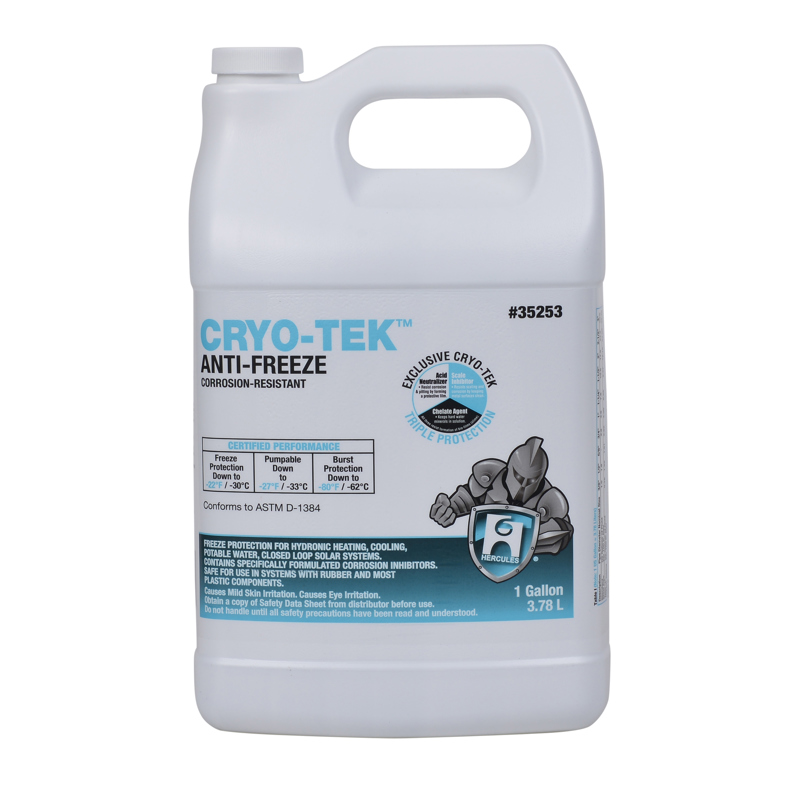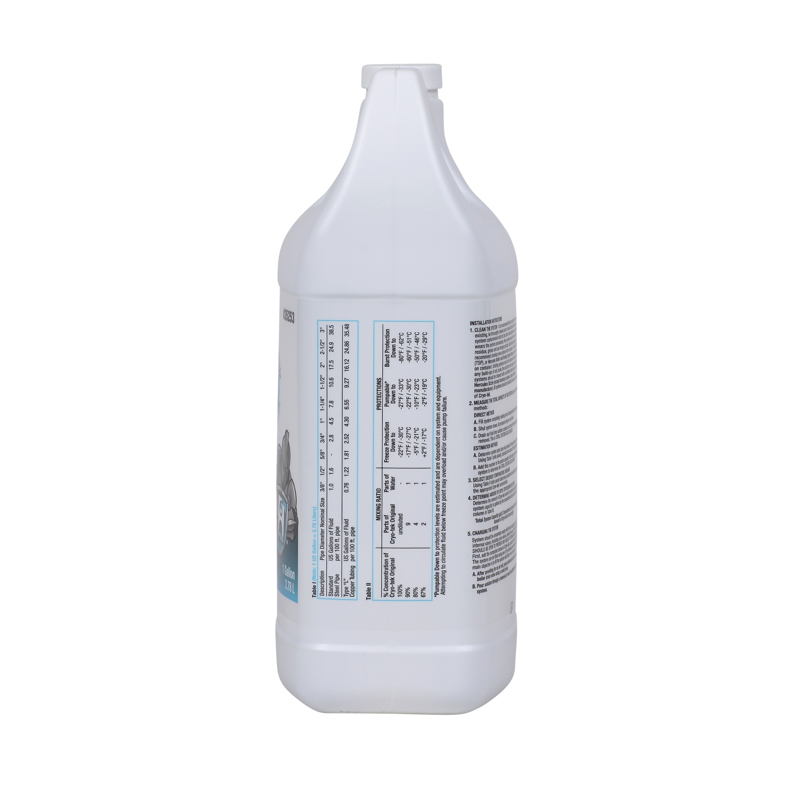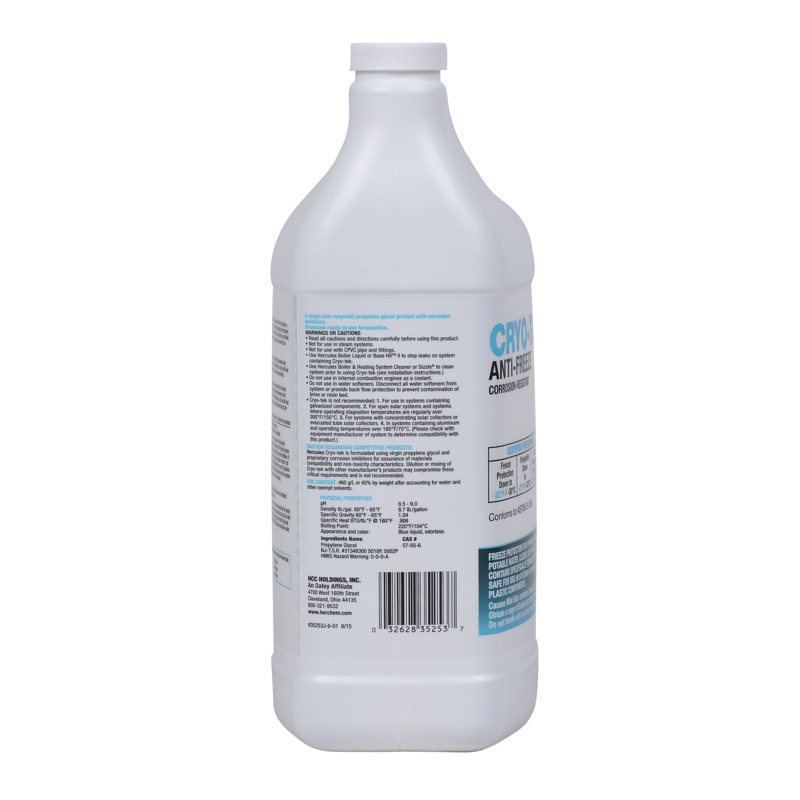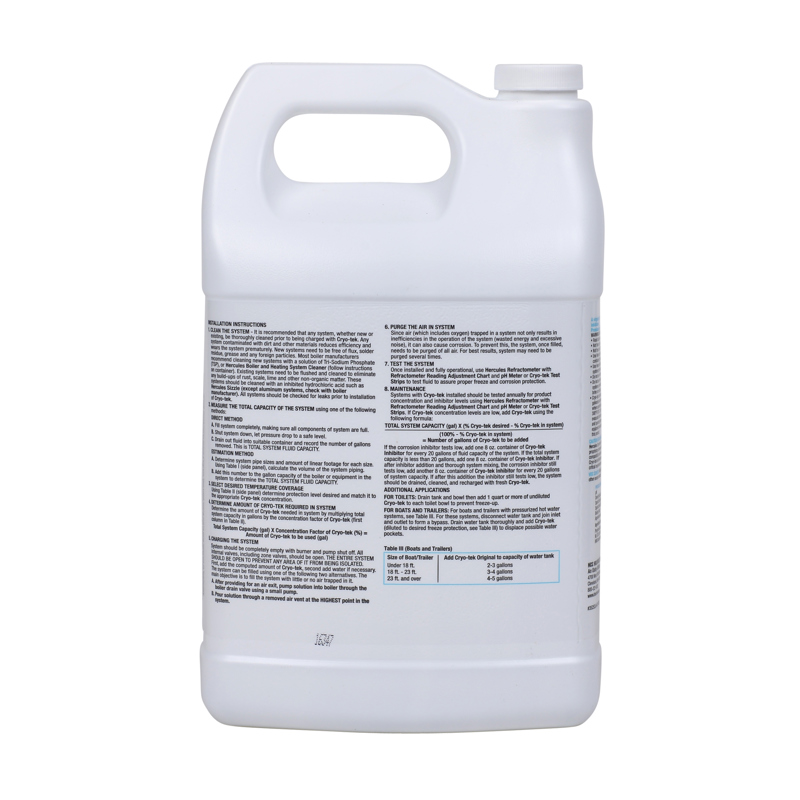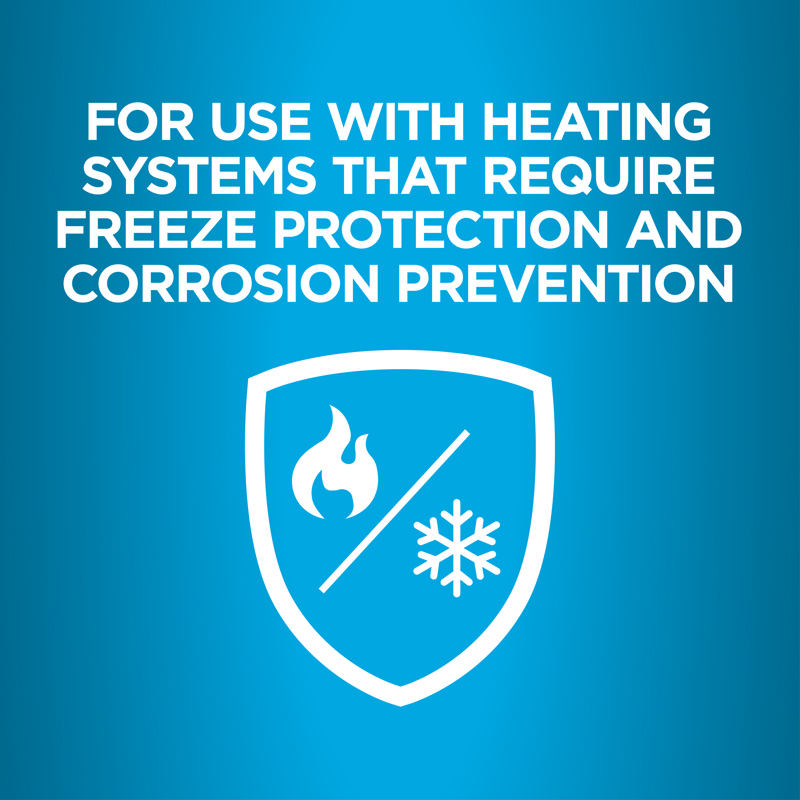< Anti-freeze
Hercules® Cryo-Tek™ Original Antifreeze
Key Features & Benefits
- Blend of 45 percent virgin propylene glycol
- The triple protection inhibitor stabilizes pH to prevent corrosion, chelates, hard water minerals, and inhibit scale and sediment formation
- Not for use with galvanized, CPVC or aluminum
- Used in systems fabricated with metal, plastics and rubber piping, fittings, seals and other parts
- For heating systems requiring freeze protection as well as corrosion prevention
- Cryo-Tek is “GRAS” (Generally Recognized As Safe) for incidental contact with food
- For warranty product details, refer to the Oatey limited Warranty document
Specifications
| Size: | 1 gal. |
|---|---|
| Weight: | 9 lb. |
| Brand: | Hercules |
| Product Type: | Regular |
| Color: | Blue |
| Material: | Liquid |
